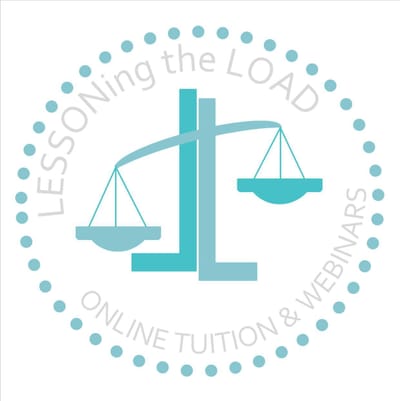Beyond the Classroom: Learning Through Real-World Experiences
When we think of education, we often picture a classroom: rows of desks, textbooks and a teacher at the front. But learning is far bigger than four walls. In fact, some of the most powerful, memorable and inspiring educational moments happen outside the classroom - through real-world experiences, exploration and curiosity. Learning is a lifelong process, not something that stops when the bell rings or exams are over. It’s about how we make sense of the world, how we connect ideas and how we apply knowledge to real-life situations.
No matter what you're studying, there’s a wealth of places across the UK where learning comes alive. Let's take the subject of psychology and see how you can step outside of the textbook and turn the subject into a real-world adventure.
For Psychology Students: Experience the Human Mind in History
Psychology is all about understanding the mind and human behaviour. And what better way to do that than by exploring things like the history and evolution of mental health, crime, therapy and social behaviour? Top Places to Visit in the UK for Psychology Enthusiasts*:
- The Freud Museum (London)
Visit the former home of Sigmund Freud and explore his study, famous couch and a rich archive of psychoanalysis history. A must for anyone exploring the roots of psychotherapy. - Bethlem Museum of the Mind (Beckenham, Kent)
Located on the site of the infamous 'Bedlam' hospital, this museum delves into the history of mental health treatment, showcasing patient art and exploring societal attitudes towards mental illness. - The Clink Prison Museum (London)
Learn about early criminal psychology, punishment and the development of the justice system in one of England's oldest prisons. - Science Museum – Who Am I? Gallery (London)
This interactive exhibit explores neuroscience, identity, memory and consciousness - ideal for understanding the modern biological side of psychology. - Thackray Museum of Medicine (Leeds)
Explore the history of medical and mental health treatment through immersive exhibitions, from Victorian-era surgeries to the development of public health. A brilliant destination for understanding how attitudes toward illness and the human mind have evolved over time. - Imperial War Museum (Multiple locations)
Delve into the psychological impact of war, trauma, PTSD and how conflict shapes human behaviour. A powerful complement to studies in social psychology or trauma theory. - Jack the Ripper Walk (London – if age appropriate. Parental guidance advised due to gruesome content)
Walk the streets of Whitechapel and explore the infamous unsolved case that still captures the imagination of criminologists and psychologists alike. This guided walking tour provides historical context, theories on criminal profiling and insight into the Victorian-era justice system. - National Science and Media Museum (Bradford, West Yorkshire)
Explore perception, vision, memory and communication in a sensory-rich environment. Their Wonderlab and Experience TV exhibits are great for exploring how humans process information. - Manchester Museum of Science and Industry (Manchester)
While more science and technology focused, their human biology and brain-related exhibits can be useful for students exploring cognitive psychology or neuroscience. - The Workhouse (Southwell, Nottinghamshire – National Trust)
This historic site offers insight into the treatment of poverty, illness and mental health in the 19th century. Perfect for social psychology and understanding societal attitudes to vulnerability and welfare. - Surgeons' Hall Museums (Edinburgh)
Part of the Royal College of Surgeons, this museum includes anatomical and pathological collections. Excellent for students exploring the biological basis of behaviour, brain trauma and the evolution of medical understanding. - Edinburgh Dungeon (Edinburgh)
A theatrical and immersive history of crime, punishment and social control. Great for discussing criminal psychology, fear responses and moral development (recommended for older students). - Scottish Crannog Centre (Loch Tay)
While more anthropological, this ancient settlement can offer insights into early human behaviour, societal development and communal living - all relevant to evolutionary psychology. - Escape Rooms (Various Locations)
Great for exploring teamwork, communication, stress responses and decision-making under pressure - relevant to cognitive and social psychology. - Local Courtroom or Crown Court Visits (Various - if age appropriate)
Public gallery observation can offer insight into criminal psychology, jury behaviour and legal decision-making.
Learning is Everywhere
Education shouldn't be an effort as it happens in conversation, in museums, on walking tours and through experiences. It’s found in asking questions whilst watching the news, reflecting on an exhibit or simply being curious in a new environment. These are just some examples of how stepping out of the classroom can reignite a love of learning. Whether it’s understanding Freud’s theories in his own home or linking Milgram's work on obedience to the atrocities of war, real-world experiences deepen our understanding and make learning memorable.
Final Thoughts
You don’t need a classroom to learn - and sometimes, the best learning happens when you leave it behind. Education is a lifelong journey, and the world around you is full of lessons waiting to be discovered. So next time you're reading a play, solving a maths question with Trigonometry, designing an experiment, studying a psychological theory or revising for an exam, ask yourself: Where can I go to experience this for real?
Because the best education isn't always taught - it’s lived.
* Please check exhibits, museums and the opportunities for learning mentioned on this page are still available.
